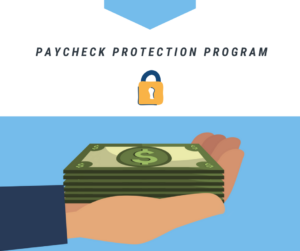As the world grapples with the impact of COVID-19, Black Knight, Inc. has assessed many of the potential effects of the pandemic on the real estate and mortgage industries. Leveraging Black Knight’s extensive property, home price and loan-level mortgage data, proprietary analytics, as well as third-party information, the company has released an extensive white paper that provides an in-depth evaluation of the impact the extended disruption of the COVID-19 pandemic may have on the housing and mortgage industries.
“These are unprecedented times, for the world as a whole and for the real estate and mortgage industries specifically,” said Black Knight CEO Anthony Jabbour. “Given Black Knight’s leadership position in the industry – and our extensive data, research and analytics capabilities – we felt compelled to assess this situation for our clients and the markets we serve. The true effect of the nation’s response to the pandemic, including social distancing and shelter-in-place orders in some areas, remains to be seen. One thing is certain, though: the regulatory and operational issues this situation presents are significant. Our clients are already working to assist consumers under the new regulatory requirements of the CARES Act, and will be required to make additional changes to effectively deal with other rapidly growing business challenges.
Many aspects of the real estate and mortgage process, including property showings, listings and sales – as well as critical services, such as inspections and appraisals – are already being affected due to social distancing. Disruption to many necessary aspects of real estate closings, including the fact that many county recorder offices are now closed, is exacerbating the issue. Market and rate volatility are bringing additional uncertainty to the housing market, home affordability, refinance incentive and portfolio retention risk. More than 10 million Americans have filed for unemployment in the weeks since COVID-19 was labeled a pandemic. These rising unemployment rates have already resulted in a surge of COVID-19-driven forbearance requests and associated operational challenges, and increased mortgage defaults are likely. Further, as potentially millions of Americans seek forbearances from their mortgage lenders, servicers will ultimately wrestle with many billions of dollars in principal and interest payment advances that need to be made to investors every month.
The thorough, informative white paper also details the existing technology solutions that can help address many of the negative effects of the pandemic on the real estate and mortgage markets. Black Knight’s years of investment and innovation in digital mortgage technology – as well as automated and remote valuation technology and eClose solutions – allow a majority of the mortgage application, underwriting and closing processes to happen online and remotely. Likewise, technology solutions such as Black Knight’s Loss Mitigation module of its industry-leading MSP servicing system will be essential in systematically identifying and engaging borrowers who are eligible for forbearance programs, as well as a variety of loan modification options and post-forbearance workout plans. Black Knight has issued an additional white paper for its MSP clients that details the way the system can help servicers manage specific challenges resulting from this crisis.
“Black Knight moves forward in these uncertain days with an even greater sense of urgency to support our clients,” Jabbour continued. “Our commitment to them remains our top priority. The right technology partner is critical in times such as this. As our clients’ business partner, it’s essential for us to provide them both a truly holistic view of the mortgage and housing lifecycle and near real-time data and actionable intelligence for effective decision-making. Black Knight remains dedicated to being that partner for all of our clients, across the entire real estate-mortgage continuum.”
Much more detail on the impact of COVID-19 on the mortgage and real estate industries, as well as challenges and solutions relevant to individual market segments, can be found in Black Knight’s special briefing. The company’s white paper is available to download for free at this link.
As this crisis remains a very fluid situation, with changes occurring on a daily basis, Black Knight will continue to monitor the industry impact and implications and provide supplemental updates via Vision, the Black Knight blog. Those interested in staying up-to-date on industry developments are encouraged to visit the blog for more information in the coming days and weeks.


